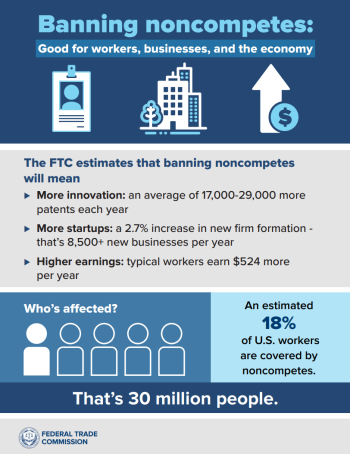
Chains Unshackled: The FTC's Bold Move to Ban Noncompete Clauses
In a landmark decision that could reshape the American workforce landscape, the Federal Trade Commission (FTC) has voted to ban most noncompete agreements, heralding a new era of job mobility and innovation. This bold move, aimed at boosting competition and increasing wages, could potentially impact 30 million workers, liberating them from the often restrictive and exploitative shackles of noncompete clauses. Noncompete agreements, traditionally used to protect business secrets, have increasingly permeated various sectors, binding even low-wage workers and stifling overall economic dynamism. The FTC's decisive 3-2 vote reflects a significant shift towards enhancing worker freedoms and encouraging a more dynamic interchange of ideas and skills across industries. While the rule is set to empower employees and spur the creation of thousands of new businesses, it faces staunch opposition and impending legal challenges from various business groups, who argue that noncompetes are crucial for protecting intellectual property and maintaining competitive edges. As the rule gears up for implementation, the landscape of American labor laws stands on the brink of a potentially transformative change.
Conclusion
The FTC's ruling on noncompete clauses marks a pivotal turn in the debate over labor mobility versus corporate protection. As the regulation prepares to take effect amidst promised legal battles, the outcome will significantly influence the future of work in America. Whether this leads to a surge in innovation and worker satisfaction or a reevaluation of business strategies remains to be seen, but one thing is clear: the American workforce is on the cusp of a potentially liberating change.